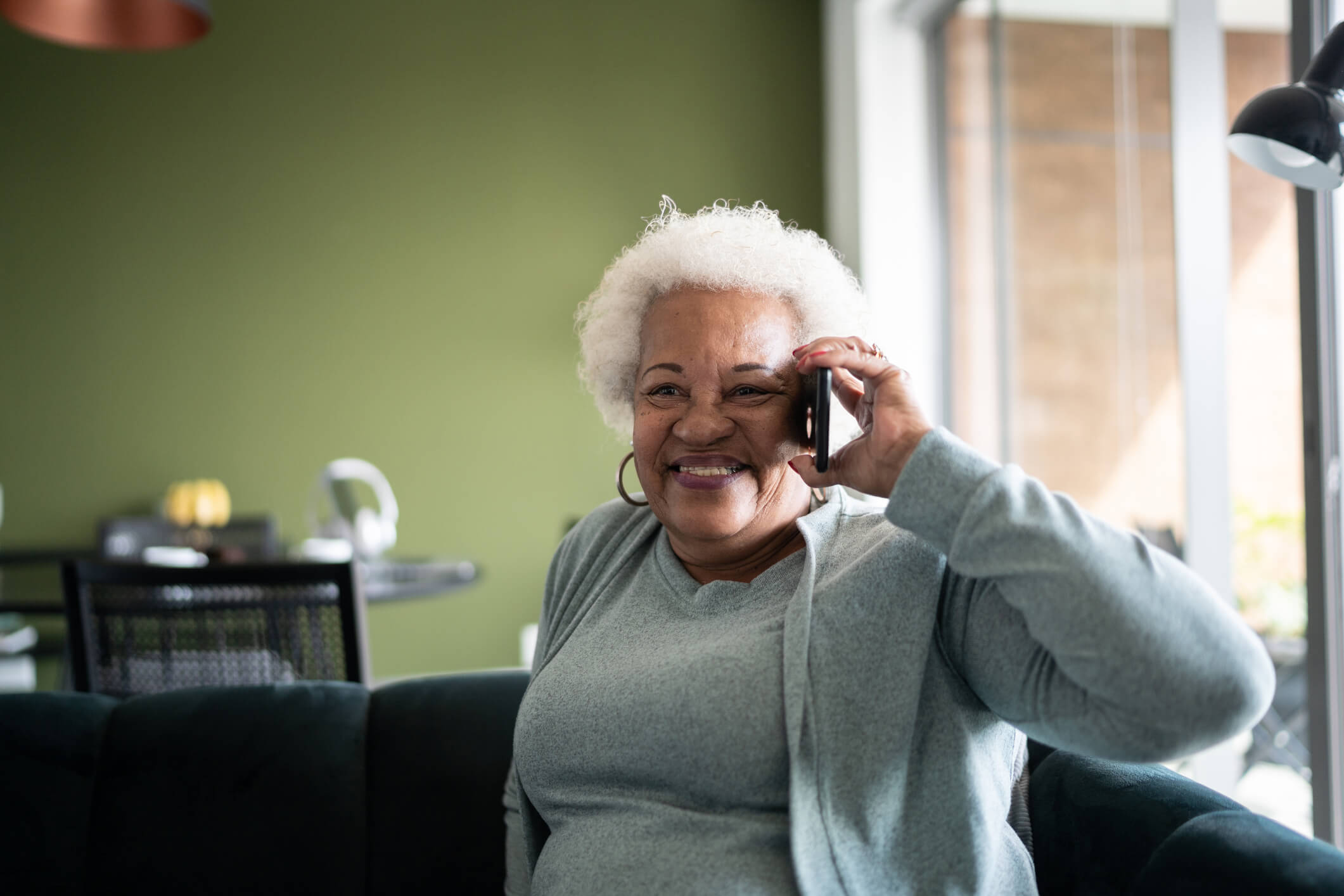Researchers develop virtual screening to support seniors during pandemic
Virtual screening can help identify medically frail seniors in need of supports
The COVID-19 pandemic has changed how we interact with family, get haircuts, go shopping, and visit the doctor. For older adults, it’s also affected access to frailty screenings used to identify patients at greater risk of health complications. It’s a problem that an Athabasca University-led research team is aiming to solve.
The Canadian Frailty Network defines frailty as a medical condition of reduced function and health in older adults. Inactivity, poor nutrition, social isolation or loneliness, and multiple medications all contribute to frailty. More than 1.5 million Canadians are medically frail, according to estimates, and that number could reach 2 million within 10 years.
According to Dr. Tammy O’Rourke, assistant professor in the Master of Nursing, Nurse Practitioner program at Athabasca University (AU), social isolation during the pandemic has not only contributed to a rise in levels of frailty, it has also created barriers to screening seniors for the condition in person.
Screening helps identify frailty levels in seniors to help ensure they have the necessary supports in place to continue living independently.
“This is more important now than ever before. With COVID, we want to keep seniors in their homes for their safety,” said O’Rourke.
RELATED: AU faculty receives funding for advancing frailty project
This is more important now than ever before. With COVID, we want to keep seniors in their homes for their safety. Dr. Tammy O’Rourke, assistant professor in the Master of Nursing, Nurse Practitioner program at Athabasca University
Helping seniors remain independent
Since 2020, O’Rourke has been the leading DRAGONFLY (Building Resilience and Responding to Senior Frailty) program. This quality improvement research project aims to increase knowledge of frailty and implement best practices among professionals in community senior serving organizations.
Part of this project involved conducting frailty screenings and comprehensive geriatric assessments through the Sage Seniors Association in Edmonton.
O’Rourke explained that if seniors score between four and six on the virtual frailty screening, adapted from the clinical frailty screening, that’s an indicator that they need additional assessment and possibly access clinical and social services. If they score higher, it’s likely they’ve already access services; any lower and they do not need supports.
“It’s the moderate people that needed additional support, so they don’t move up on the scale,” she explained.

Pandemic forces pivot to new screening methods
Due to the pandemic and funding challenges, however, in-person screenings were no longer possible. As a result, O’Rourke and her team had to pivot from face-to-face to virtual assessments.
The researchers identified nine questions they could ask seniors over the phone about their own perceptions of their frailty—a process they called the virtual frailty scale.
Once patients were screened over the phone, nurse practitioners were sent to the homes of the same seniors to test and validate the new screening methods.
Virtual methods just as effective, study finds
Since the start of the pandemic, O’Rourke and team have conducted 101 virtual frailty screenings. Their preliminary research shows that the virtual frailty screenings are just as effective as in-person screenings.
The team also taught the new virtual screening to staff at Sage Seniors Association and to the social work team with DRAGONFLY. This change has greatly expanded the ability to assess older adults, which has implications for accessing clinical and social supports that can help them continue to live independently.
“We need to assess these groups to see where their resilience lies, and where their gaps are in terms of services,” O’Rourke said.
The research team, which also included AU faculty member Jananee Rasiah and other colleagues in primary care, recently published their findings in the peer-reviewed Journal of Primary Care & Community Health.
Learn more about research in the Faculty of Health Disciplines at AU.